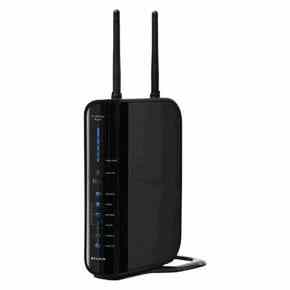
Issue
I received an internet connection through an ethernet connection in my apartment. I can plug my PC into the network port and get an automatic internet connection.
I recently bought a laptop (Dell studio 15 with Windows 7) which I want to connect wirelessly using the same internet connection. I also have a Billion 7401VGP-M wireless router (it is also an ADSL modem/ VOIP box) I have connected the router to the ethernet port through which I get the internet connection (port 1 on the router) and to the PC (port 2 on the router)- internet works fine on the PC.
The laptop connects wirelessly with the router (ie I can access the router settings via the browser in the laptop) but doesn't get the internet connection. Funnily enough- the PC doesn't seem to want to connect to the router admin settings via its browser but has an internet connection through the router.
Any ideas/ am I missing something simple?
Solution
That wireless router might have a firewall that is interfering with the connection. You already have a router in the building and this is the second router in the chain. These are some suggestions for using two routers:
Installing a Two Router Network
Installing a router to work as the second one on a home network requires a special configuration. Do the following on the second router to ensure it (and the devices attached) function properly:
1. Connect as local device or bridge - If connecting the second router via Ethernet cable, plug it into one of the LAN ports on the first router. If connecting the second router wirelessly, ensure the second router is set for client mode. Note that some home wireless routers do not support client mode; these must be connected by cable. Check your router documentation for details on its client mode configuration support.
2. Check / change IP address - Most home network routers use a default IP address setting. Often, these default IP addresses will not work in a two router environment. Check the second router's IP address value and reset it if necessary to work within the valid address range of the first router (and to not conflict with any other device on the network).
3. Disable DHCP - To avoid IP address conflicts between all of the devices on the home network, only one of your two routers should assign addresses via DHCP. All mainstream routers provide an option to disable DHCP as part of the router's configuration screens.
Note
Thanks to xpcman for this tip on the forum.











